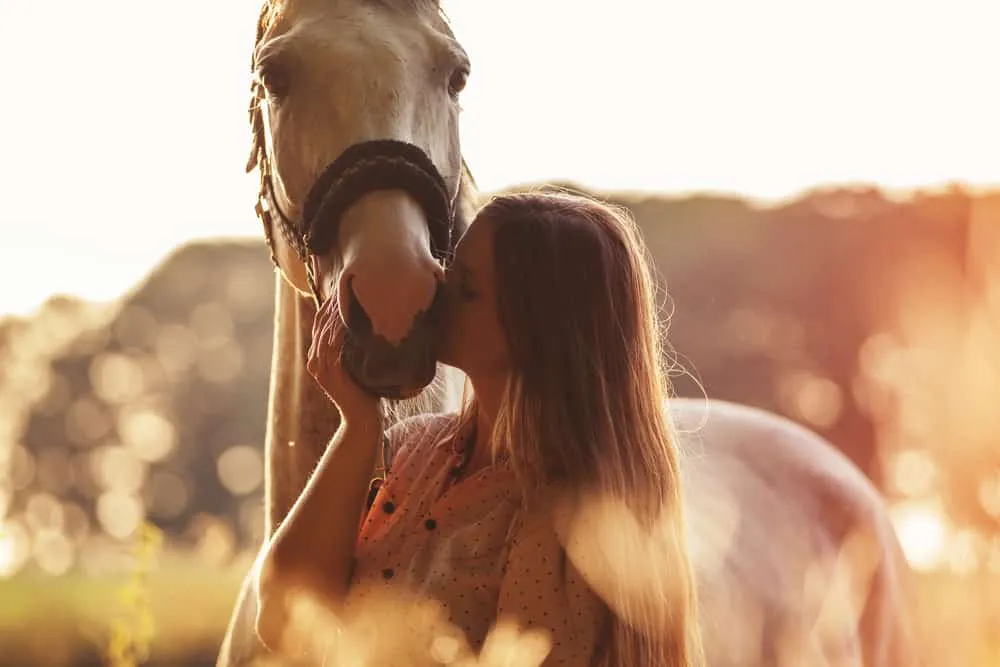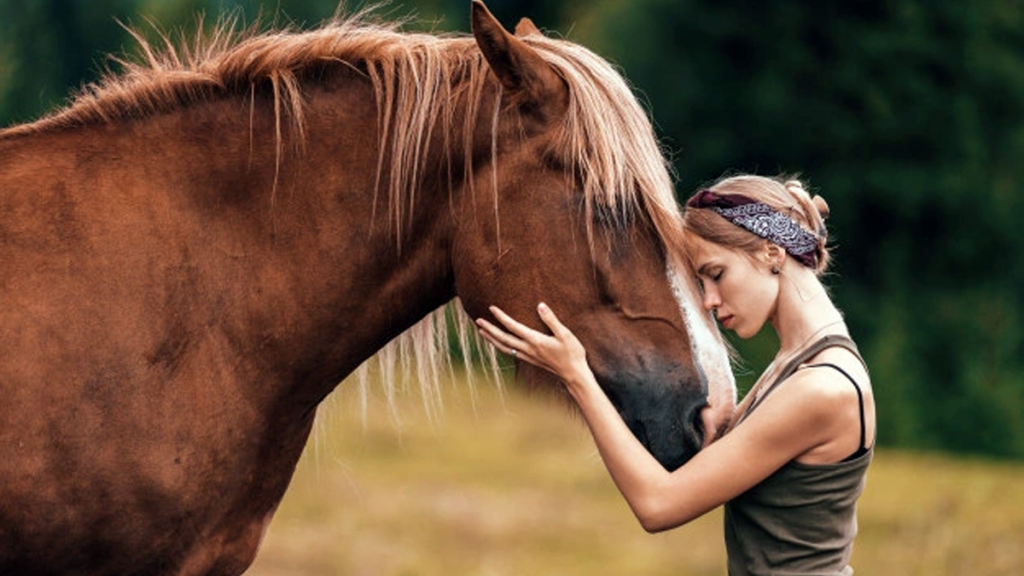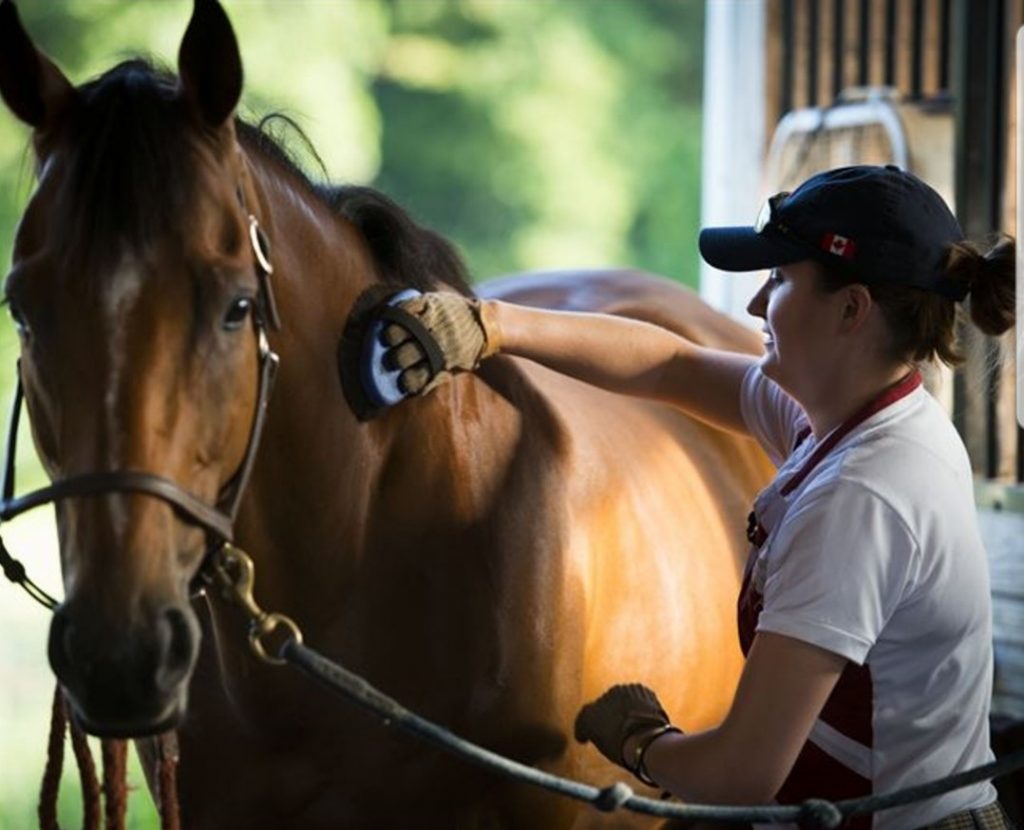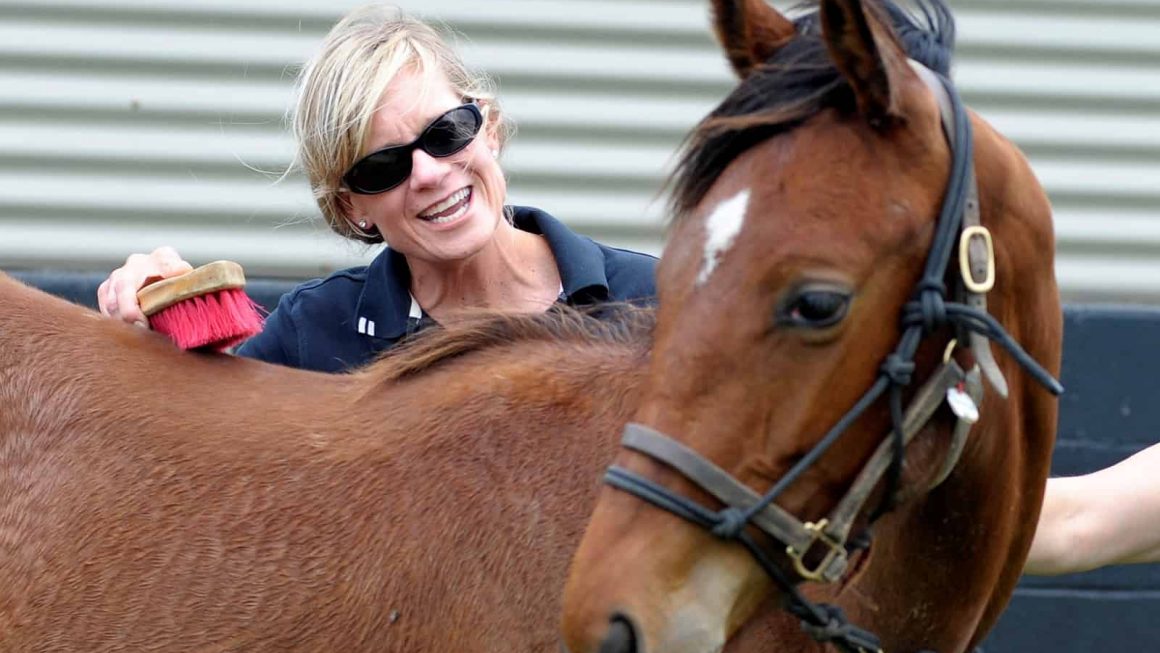How do you know if a horse likes you? Horses are magnificent creatures known for their beauty, strength, and loyalty. As humans, we have formed a special bond with horses as our companions, working partners, and even therapy animals. How can you tell if they enjoy your company and look forward to spending time with you?
In this article, we will explore the various ways in which horses show affection and how you can determine if your horse truly likes you.
Seemore: Can Horses Eat Grapes? – All Important Things You Should Know
Understanding Horse Behavior
Before delving into the signs of a horse liking you, it is important to understand horse behavior. Horses are prey animals by nature and have evolved to be highly sensitive and aware of their surroundings. They communicate primarily through body language and use their senses to assess threats and form social bonds.

As herd animals, horses thrive on social interaction and rely on their herd members for safety and companionship. When interacting with horses, it is essential to remember that they do not think or behave like humans. They have their own unique way of communicating and perceiving the world around them.
How Do You Know If a Horse Likes You?
There are several behaviors and gestures that horses display when they are fond of someone. These signs can range from subtle to obvious and can vary depending on the individual horse. Here are some common signs a horse likes you:
1. Seeking Your Company
One of the most apparent signs that a horse likes you is when they actively seek your company. Horses are naturally curious creatures and will often approach people they find interesting or trust. If your horse constantly follows you around the pasture, nuzzles you, or stands close to you, it is likely that they enjoy being around you.
Sub-heading: Nuzzling
Nuzzling is a behavior commonly seen in horses that are comfortable and at ease with their handlers. It is an affectionate gesture that horses use to bond with each other and humans. When your horse nuzzles you, it is a sign of trust and affection, as they are comfortable enough to get close to you and make physical contact.
Nuzzling can also serve as a form of grooming, where horses will nuzzle each other’s necks, shoulders, and backs in search of itchy spots or to remove dirt and debris. If your horse nuzzles you, it means they see you as part of their herd and trust you enough to groom them.
Sub-heading: Standing Close
Horses are social animals and often prefer to be in the presence of their herd members. When a horse likes you, they may stand close to you, indicating that they view you as part of their group. This behavior is especially evident when horses are grazing, and they choose to stand next to you instead of grazing alone.
2. Displaying Relaxation Signals
Horses are highly attuned to their surroundings and can easily pick up on stress and tension. When a horse likes you, they may exhibit relaxation signals such as licking and chewing, lowering their head, and drooping their ears. These behaviors indicate that the horse feels safe and calm in your presence.
Sub-heading: Licking and Chewing
Licking and chewing are common relaxation signals seen in horses. It involves the horse opening and closing their mouth while sticking out their tongue and moving it around. This behavior is often seen after a stressful event, and it indicates that the horse has released tension and is now relaxed.

When a horse licks and chews in your presence, it means they feel comfortable and safe with you. This behavior can also occur during grooming sessions, as horses enjoy the feeling of being groomed and will often show signs of relaxation.
Sub-heading: Lowering Head and Drooping Ears
Lowering the head and drooping ears are also relaxation signals that horses display when they feel at ease. A horse will often lower their head and neck, stretch out their nose towards the ground, and may even close their eyes while standing still. This posture indicates that the horse is relaxed and trusts you enough to let down their guard.
Drooping ears are another sign of a relaxed horse. Horses will naturally hold their ears upright, pointing them in different directions to listen for potential threats. However, when a horse feels content and safe, their ears will droop downward, showing that they are at ease.
3. Responding to Your Voice and Touch
Horses are highly perceptive animals and can recognize familiar voices and touch. If your horse responds positively to your voice and touch, it is a sign that they like you and enjoy your company.
Sub-heading: Responding to Voice
Horses have excellent hearing and can pick up on subtle changes in tone and pitch in a person’s voice. When a horse likes you, they will often respond to your voice by nickering or whinnying, indicating that they recognize you and are happy to hear you.

To strengthen your bond with your horse, try using a soothing and gentle tone when speaking to them. Horses respond well to a calm and confident voice, which can help build trust and deepen your relationship.
Sub-heading: Responding to Touch
Horses have sensitive skin and can feel the slightest touch. When a horse allows you to touch them, whether it’s stroking their neck or rubbing their flank, it means they trust you and enjoy your touch. Some horses may even lean into you, seeking more physical contact, which is a clear sign of affection.
However, it is important to remember that not all horses enjoy being touched in certain areas, such as the face or legs. It is always best to approach a horse gently and with caution, respecting their personal space and boundaries.
FAQs: How Do You Know If a Horse Likes You?
What should I do if my horse does not seem to like me?
If your horse seems disinterested or avoids your company, it could be due to a lack of trust or a negative past experience. Take the time to observe your horse’s body language and try to understand what may be causing their behavior. Building trust and creating positive experiences through gentle handling and training can help improve your relationship with your horse.
Can horses show jealousy towards other humans or animals?
Horses can display possessive and territorial behaviors, especially towards other horses. However, they are unlikely to feel true jealousy towards humans or other animals as they do not have the same understanding of emotions as humans do.
How can I tell if my horse is stressed or unhappy?
Horses communicate through body language, so it is essential to pay attention to their posture, movements, and expressions. Some common signs of stress or unhappiness in horses include pinned ears, tense muscles, and avoidance behaviors such as turning away or moving away from you.
Can horses differentiate between humans?
Horses have excellent memories and can recognize familiar faces and voices, even after long periods of time. They may also form attachments to specific humans and display different behaviors towards them depending on their level of comfort and trust.
Do all horses show affection in the same way?
No, every horse is unique and may show affection in different ways. While some horses may nuzzle or follow their owners around, others may prefer keeping their distance and showing subtle signs of affection. It is important to understand your horse’s individual personality and preferences to determine how they express their liking towards you.
Conclusion: How Do You Know If a Horse Likes You?
In conclusion, horses are highly social animals that can form strong bonds with their human companions. By understanding their natural behavior and paying attention to their gestures and reactions, we can determine whether our horses truly like us. Remember to always approach horses with respect, patience, and understanding, and you will surely earn their trust and affection in return.

